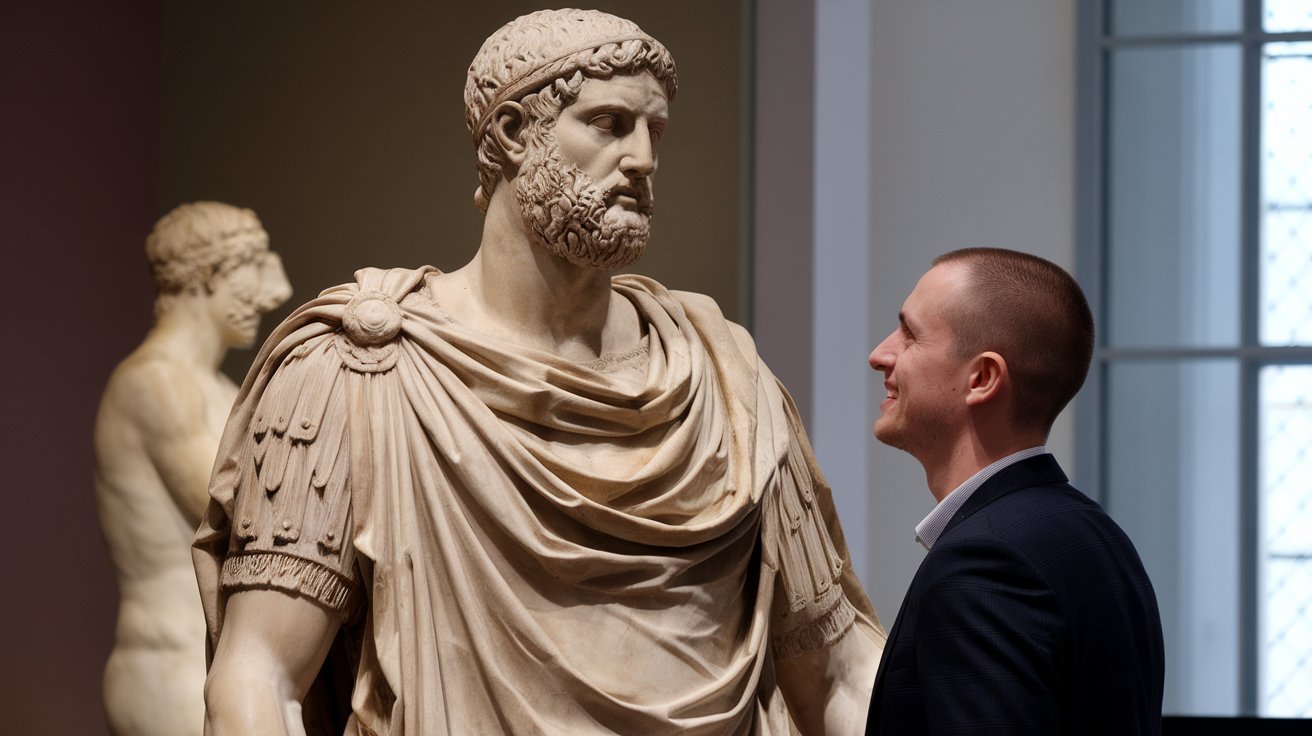From the early codifications in Europe to the modern constitutions around the world, Christianity has left a profound imprint on legal structures and ideas about justice. By tracing key developments through history, one sees that the Christian faith—its teachings, institutions, and adherents—helped shape the moral and philosophical underpinnings of many legal systems. While the modern day sees increasing pluralism, secularization, and separation of church and state, the legacy of Christian thought on law remains significant.
1. Early Christian Thought and Roman Law
The Influence of Canon Law
- Emergence of Canon Law: After Christianity was legalized within the Roman Empire (4th century CE), the Church began to develop its own legal system—canon law—governing ecclesiastical matters such as doctrine, clergy conduct, and church discipline. The Corpus Juris Canonici (the body of canon law) subsequently influenced secular legal traditions by offering systematic legal codes and procedural norms.
- Moral Foundations: Early Christian theologians such as Augustine of Hippo (354–430 CE) and later Thomas Aquinas (1225–1274 CE) explored the relationship between divine law and human law, suggesting that just laws must align with a higher moral order. These ideas would become cornerstones of Western legal philosophy.
Adaptations Within Roman Law
- Transition from Pagan to Christian Empire: Emperor Constantine the Great (4th century) initiated a shift in how the empire framed its laws—eventually banning certain pagan practices and promoting Sunday as a day of rest, reflecting Christian religious observance.
- Justinian’s Code (6th century): Emperor Justinian I compiled the Corpus Juris Civilis, a cornerstone of civil law in many European jurisdictions. While rooted in earlier Roman law, Justinian’s Code also integrated Christian ethics, aiming to create laws consistent with Christian moral teachings.
2. The Medieval Period and Beyond
The Magna Carta (1215)
- Church’s Role in Limiting Power: Though primarily a feudal document aimed at limiting the power of the English king, the Magna Carta was sealed in the presence of Archbishop Stephen Langton and prominently featured the liberties of “the Church of England.” It recognized the Church’s autonomy in selecting its own leaders, reflecting a belief that ecclesiastical authority should remain free from undue secular intrusion.
Scholasticism and Natural Law
- Thomas Aquinas and Natural Law Theory: Aquinas advanced the idea that human laws derive their legitimacy from a higher “natural law,” which, in turn, is rooted in divine law. This concept implies that legitimate laws reflect moral principles accessible to human reason—many of which align with Christian teaching on justice and the common good.
- Influence on European Legal Systems: Aquinas’s natural law perspective underpinned the development of European legal structures. Over time, these ideas would also permeate the philosophies of Enlightenment thinkers—some of whom secularized the concept of natural rights but still operated within the broad framework originally influenced by Christian theology.
3. The Reformation and its Legal Repercussions
Protestant Ideas Reshaping Society
- Ethics of Individual Conscience: Protestant reformers like Martin Luther (1483–1546) and John Calvin (1509–1564) championed the primacy of individual conscience and the priesthood of all believers. This emphasis on personal interpretation of Scripture encouraged literacy, education, and the notion of personal accountability within the law.
- Influence on Governance Structures: In some Protestant regions, civil authorities saw themselves as custodians of moral and spiritual welfare, integrating Christian ethics into statutes. The spread of Protestantism facilitated ideas that influenced modern concepts of limited government and social contract, as individuals were seen as having both civic and spiritual responsibilities.
Emergence of Religious Tolerance (and Intolerance)
- From Religious Conflicts to Legal Protections: The Reformation also led to conflicts such as the Thirty Years’ War (1618–1648), eventually paving the way for legal protections such as the Peace of Westphalia (1648). Although primarily political, these treaties shaped early modern notions of state sovereignty, religious tolerance, and legal frameworks ensuring freedom of religious practice—ideas still central in many constitutions.
4. Christian Morality and Early Modern Legal Codes
Colonial Legal Frameworks
- Spanish and Portuguese Colonies: Spanish legal codes like the Leyes de Indias (“Laws of the Indies”) were heavily influenced by Catholic notions of paternal responsibility toward indigenous peoples, albeit in a colonial context fraught with forced conversions and exploitation.
- British Common Law in North America: Early Puritan communities in North America embedded Christian moral principles in their legal and social regulations (e.g., mandatory church attendance, Sabbath laws). Over time, these colonies evolved into states that adopted broader legal frameworks but still reflected a Christian-inflected moral ethos.
Enlightenment and the De-Christianization Trend
- Secular Reasoning with Christian Roots: Thinkers like John Locke, Montesquieu, and even Thomas Jefferson were influenced by Christian concepts of natural rights and natural law, even as the Enlightenment moved toward a more secular approach. Documents such as the Declaration of Independence and the U.S. Constitution balanced Enlightenment rationalism with residual Christian moral frameworks.
- Separation of Church and State: Though the U.S. Constitution officially established the separation of church and state, many early American laws—especially regarding marriage, public morality, and education—retained clear Christian influences.
5. Present-Day Legal Systems and Christian Influence
Contemporary Moral Laws and Social Values
- Human Dignity and Rights: The idea that every human being possesses inherent dignity has deep Christian origins, echoed in modern laws against discrimination, slavery, and torture. Even modern secular human rights instruments, such as the Universal Declaration of Human Rights, reflect this moral foundation—though now formulated in non-denominational terms.
- Marriage and Family Laws: While family law in many Western nations is becoming increasingly inclusive and secular, historical Christian conceptions of marriage and family have shaped legal definitions of kinship, inheritance, and parental rights. Over time, these laws have been adapted or reinterpreted as societal norms evolve.
Holidays, Customs, and Symbols
- Religious Observances in Public Life: Although many countries now recognize multiple religious (and secular) holidays, Sunday closures, Christmas, Easter, and other observances reflect the historical significance of Christianity in shaping public life.
- Influence on Symbolic Practices: Swearing an oath on the Bible in court (in some jurisdictions), references to God in state mottos or pledges, and Christian iconography in courthouses underscore the enduring cultural link between Christian faith and civic tradition.
Challenges in Pluralistic Societies
- Maintaining Neutrality vs. Historical Identity: Modern states often walk a tightrope between upholding freedom of religion for all citizens and acknowledging the historical Christian heritage embedded in their institutions. Legal frameworks strive to prevent discrimination or preferential treatment based on religion.
- Evolving Social Norms and Reform: Shifts in societal values—including attitudes toward marriage equality, women’s rights, and LGBTQ+ rights—often prompt legal reforms. These contemporary debates sometimes intersect with traditional Christian teachings, highlighting the dynamic nature of law in pluralistic societies.
6. Conclusion
Christian faith—through its theology, institutions, and broader cultural influence—has played a foundational role in shaping the laws we abide by today, particularly in the West. From Roman legal codifications infused with Christian ethics to the development of natural law theory and onward to modern human rights discourse, Christianity helped establish moral and philosophical frameworks that underpin many legal systems. Even as contemporary societies embrace religious pluralism and secular governance, the enduring influence of Christian faith can be seen in the continued emphasis on the dignity of the person, the sanctity of justice, and the moral duty to protect the vulnerable. Understanding these historical and philosophical roots helps illuminate why certain legal concepts persist and how they continue to evolve in light of new ethical and cultural challenges.
Suggested Readings
- Harold J. Berman, Law and Revolution: The Formation of the Western Legal Tradition (Harvard University Press, 1983). (here)
- Thomas Aquinas, Summa Theologica, particularly the sections on law and morality.(here)
- Brian Tierney, The Idea of Natural Rights: Studies on Natural Rights, Natural Law and Church Law 1150–1625 (Scholar’s Press, 1997).
- John Witte Jr., Law and Protestantism: The Legal Teachings of the Lutheran Reformation (Cambridge University Press, 2002).
- David Bentley Hart, Atheist Delusions: The Christian Revolution and Its Fashionable Enemies (Yale University Press, 2009), for an exploration of Christianity’s cultural and legal impact.
These works offer deeper insights into how Christian thought shaped early legal frameworks, influenced moral philosophies, and continued to evolve in the modern age.




